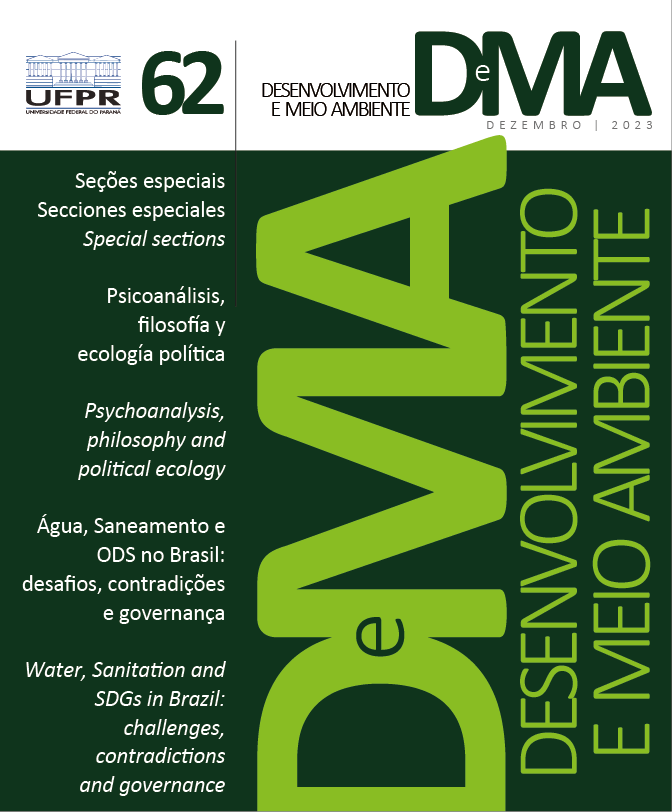Water and sanitation in Brazil: conflicts, appropriation, and environmental injustice
DOI:
https://doi.org/10.5380/dma.v62i0.89421Keywords:
conflicts over water, environmental injustice, access to water, sanitation, social participationAbstract
This article addresses conflicts over water use, new parties' appropriations of the sanitation sector, and the conditions of climate injustice that have been generated based on the new legal framework and in the context of climate change. The analysis was done under the Sustainable Development Goal 6 lens: “Ensure access to water and sanitation for all”. The Brazilian water and sanitation legal framework has been affected by constant changes in the past decade. The universalization of public water supply and sanitary sewage services has not yet been reached, and the distribution of sanitation in the territory is unequal among populations and regions, with access prevailing in urban centers to the detriment of populations living in peripheral neighborhoods of metropolitan regions. It's necessary to understand the issues considering the theory of conflicts over water use and climate justice. Added to these problems are drought events and the water governance crisis; thus, the inclusion of climate change and climate adaptation in the sanitation agenda is essential so that access to water and sanitation can be guaranteed for all.
Downloads
Published
How to Cite
Issue
Section
License
Copyright on works published in this journal rests with the author, with first publication rights for the journal. The content of published works is the sole responsibility of the authors. DMA is an open access journal and has adopted the Creative Commons Attribution 4.0 Not Adapted (CC-BY) license since January 2023. Therefore, when published by this journal, articles are free to share (copy and redistribute the material in any medium or format for any purpose, even commercial) and adapt (remix, transform, and create from the material for any purpose, even commercial). You must give appropriate credit, provide a link to the license and indicate if changes have been made.
The contents published by DMA from v. 53, 2020 to v. 60, 2022 are protected by the Creative Commons Attribution-NonCommercial-NoDerivatives 4.0 International license.
DMA has been an open access journal since its creation, however, from v.1 of 2000 to v. 52 of 2019, the journal did not adopt a Creative Commons license and therefore the type of license is not indicated on the first page of the articles.




